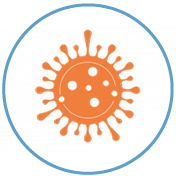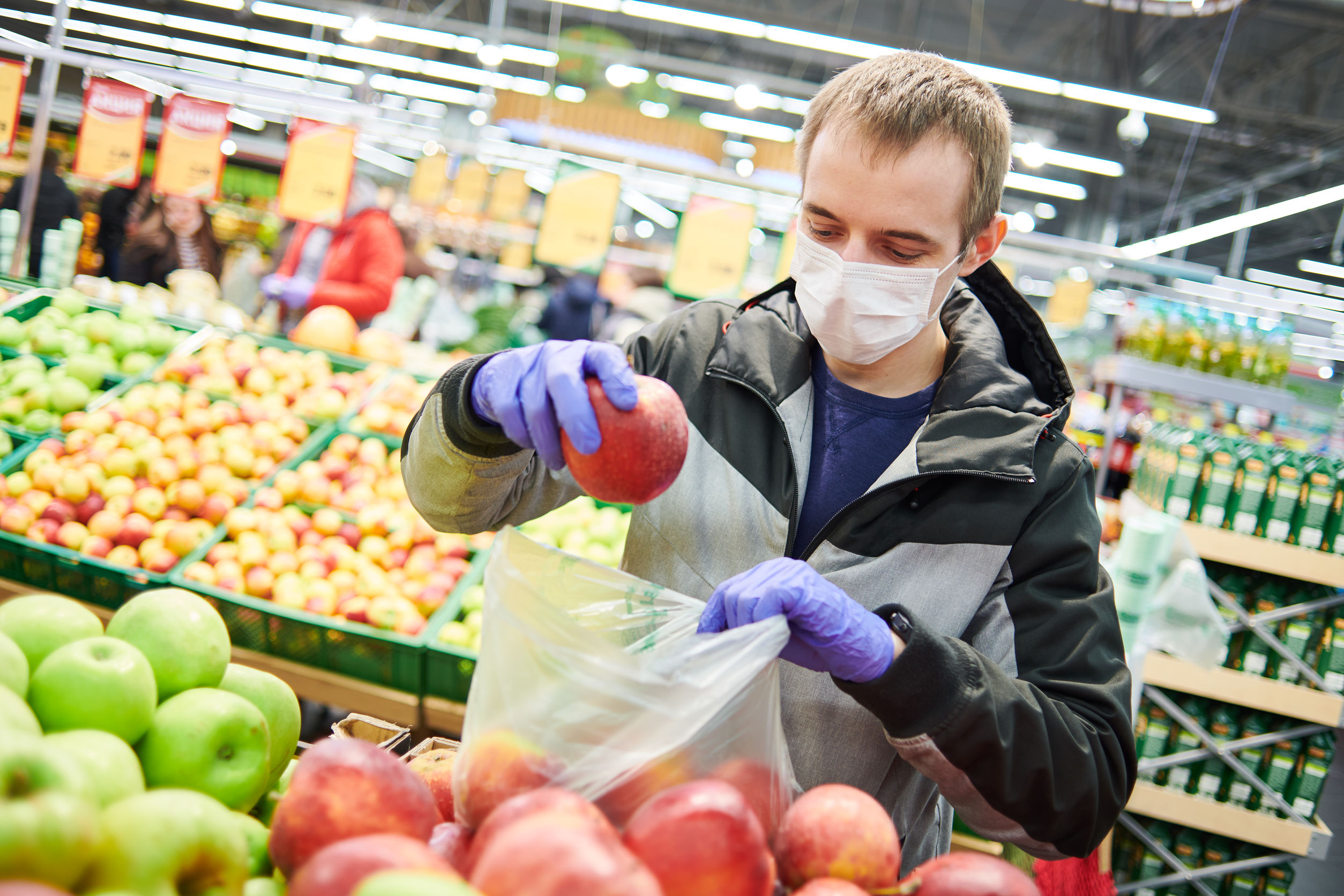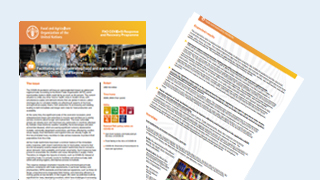 COVID-19
COVID-19
A cluster of pneumonia of unknown cause detected in Wuhan, China was first reported to the WHO Country Office in China on 31 December 2019. The ensuing outbreak was soon identified as being caused by a novel coronavirus. The first case outside China was reported on 13 January 2020 and the outbreak was declared a Public Health Emergency of International Concern on 30 January 2020. On 11 February 2020 WHO announced a name for the new coronavirus disease: COVID-19. WHO said on 11 March that they had made the assessment that COVID-19 can be characterized as a pandemic.

The threat to food safety
The COVID-19 pandemic and the global response to it are presenting unprecedented challenges to the way we work and the mechanisms by which we ensure food safety, from global standard setting to operational oversight. Access to safe and nutritious food is at the forefront of consumers globally, with many people, irrespective of the state of development of their country, having to spend more time and effort planning and shopping for food. There is a much greater awareness of hygiene and the role it plays in disease transmission, and questions being asked as to whether food could play a role in the transmission of the virus causing COVID-19.
Global trade
Global food supply chains have also come under pressure with fears the complex interactions involving farmers, slaughterhouses, food processing plants, shipping, retailers and others would result in slowdowns due to port closures or disruptions in logistics and/or food supply caused by COVID-19 illness in workers along the long food chain.
Keeping food safe
COVID-19 is a respiratory illness primary transmitted through person-to-person contact and direct contact with respiratory droplets generated when an infected person coughs or sneezes. There is no evidence to date of viruses that cause respiratory illnesses being transmitted via food or food packaging. Coronaviruses cannot multiply in food; they need an animal or human host to multiply. It is highly unlikely that people can contract COVID-19 from food or food packaging.
The application of sound principles of environmental sanitation, personal hygiene and established food hygiene practices will reduce the likelihood that harmful microorganisms will threaten the safety of the food supply, regardless of whether the food is sourced from intensive agriculture, small stakeholders or the wild.
The role of Codex in COVID-19
The Codex Alimentarius Commission has developed several international best practices to ensure food hygiene in general as well as when, handling meats and other foods, and to control viruses in foods. Countries are encouraged to implement these best practices.
International risk-focused and science-based Codex texts set the benchmark for food safety in global food trade. They provide a framework for the broad management principles of food safety in a transparent rules-based trading environment and reduce risks for those operating in the increasingly complex international trading system while ensuring the protection of consumer health.
Related Codex Texts
Impact on Codex work
The COVID-19 pandemic has severely impacted the schedule of Codex sessions for 2020 and forced us to explore different ways of maintaining the momentum of the Codex standard setting work. General Subject and Commodity Committees however remain active through their electronic working groups (EWGs). Other organs of Codex such as the Executive Committee, and Coordinating Committees are holding informal virtual meetings to exchange views on Codex business continuity taking into account the core values of Codex – inclusiveness, collaboration, consensus building and ,transparency, as well as experiences of other international organisations.
Regular updates are provided on the committee web pages - click on the abbreviation of the committee name for details.
Meetings rescheduled due to COVID-19
News

Codex finishes its 44th Commission and salutes outgoing Chairperson Guilherme Da Costa

Global Launch of FAO/WHO Food Control System Assessment Tool

Codex food labelling committee / preparation and willingness to compromise keys to success

CAC44 / Codex Members updated on approach for second virtual Commission

Codex food additives working group faces the challenge of virtual meetings

CCFICS25 / Trade is what will continue to keep our global community together
Key Information
- Currently, there is no evidence that SARS-CoV-2, that causes COVID-19, can be transmitted by food
- Coronavirus cannot grow on food. A virus requires a living host in order to multiply
- The best way to avoid COVID-19 is through good hygiene habits
- Food businesses must reinforce good hygienic practices
- To ensure and maintain access to safe food, authorities must reinforce the implementation of existing international standards
In Focus
Article: Protecting food security and facilitating food trade during COVID-19
Policy: FAO COVID-19 Response and Recovery Programme - Trade and food safety standards

Resources
Posters
![]()
FOOD SAFETY AUTHORITIES should know about COVID-19
CONSUMERS should know about food safety and COVID-19
FOOD BUSINESSES should know about food safety and COVID-19
Podcasts
Read more
Q&A on food safety and COVID-19
Policy briefs
FAO and WHO information on COVID-19


